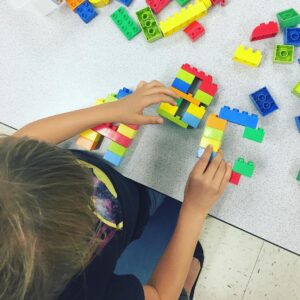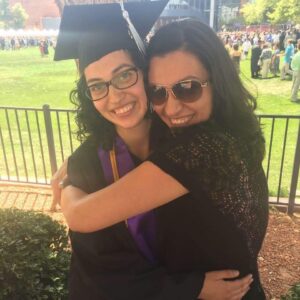PFD in the Classroom: A special education teacher’s perspective
Published by Gabi Lake on Aug 22, 2023
After 8 years as an educator in the public school system, I have worked with a handful of students who have pediatric feeding disorder (PFD). The students I supported fell under broad spectrums of disability, and that does not exclude the spectrum that exists within PFD. Some children had g-tubes that required nursing accommodations and/or 1:1 aides; some had sensory sensitivities that made for a very limited selection of preferred foods; some children had to be spoon-fed with their food cut up and watched carefully for choking, gagging, etc.
It was a world that, for a long time, I generalized as “SpEd World.” It wasn’t until two years ago, when I learned about PFD through Feeding Matters, when I realized that PFD in many ways is a world of its own.
I wish I could say that PFD was something I was taught about in my college program; it was not. I wish I could say that I felt fully knowledgeable and prepared to support my students who had PFD; I was not.
On the very first day of school as a first-year teacher, I was face-to-face with a child who had PFD. There were times throughout the year, when I saw her sweet face become instantly distressed when she ran out of food in her lunchbox. It contained the only three things she ate: pureed fruit/vegetable blends (but only banana-apple-pear, sweet potato, and butternut squash… Other flavors, she would not eat and would know upon simply opening the puree pouch that it was not her safe foods), Nilla wafers, and vanilla-flavored milk.
Her parents packed what they knew to be a typical day’s worth of food for her, but on days when she was particularly hungry, she would eat through it by our scheduled 10:30 lunch, leaving nothing for 1:30 snack. She cried and screamed, and my heart just broke. I did everything I knew to do – offer her comfort, and offer her snack options from my cabinet. At the time, I did not know how specific and restrictive her diet was. Looking back, and knowing this student so well now, I realize that I caused even more distress in doing this. Her parents were amazingly accommodating, and we worked out a system to have extra supplies at school for her.

I tell this story not to discourage anyone, but to simply make the point that all teachers – even special education teachers, who have been trained in how to legally accommodate for a variety of unique needs – still need to be educated on pediatric feeding disorder. We know that roughly 1 in 37 children under the age of 5 in the United States are diagnosed with PFD; that means that there’s roughly one kindergartner in every classroom in America who has a diagnosis that we teachers know very little about and likely will not know how to accommodate.
The heart of a teacher is that of a giver, someone who wants to serve children and families and affect positive change in their community. In this way, we align beautifully to the heart and mission of Feeding Matters. We cannot, however, serve children and families without a growth mindset. We must always be seeking to learn new things, to improve our practice, and to gain a better understanding of the children we serve. PFD is one of the areas of knowledge that we teachers generally lack in, and this needs to be addressed.
I came to learn about PFD on my own terms, after gaining more and more students who fell into this category. I found Feeding Matters specifically when a student with a g-tube entered my classroom, because I felt I needed to know more in order to ensure his safety and wellbeing.
While it is amazing that Feeding Matters provides so much in-depth information, it is up to us to seek it out. I hope that we can integrate PFD into field programming at universities, not just for special education but for all educators across all specialties (because I know several students who are out in their grade-level classrooms with PFD as well!). Teachers should be prepared to serve these students, and this is the first step.

Below is a list of concepts that I feel should be included in educator academia:
- Definition, signs and symptoms of PFD
- Meaningful accommodations for PFD, (i.e., nursing services) and how these accommodations are written into IEPs/school documents
- Peer-reviewed research on how PFD affects development, including how their learning may be specifically impacted
While these are somewhat basic, this information is essential for teachers to effectively educate, advocate, and accommodate their students who have pediatric feeding disorder. With this as a solid foundation, we would be making a better world for children with PFD. And isn’t that the whole point?
Parents have provided permission for their student’s story and photo to be shared here.